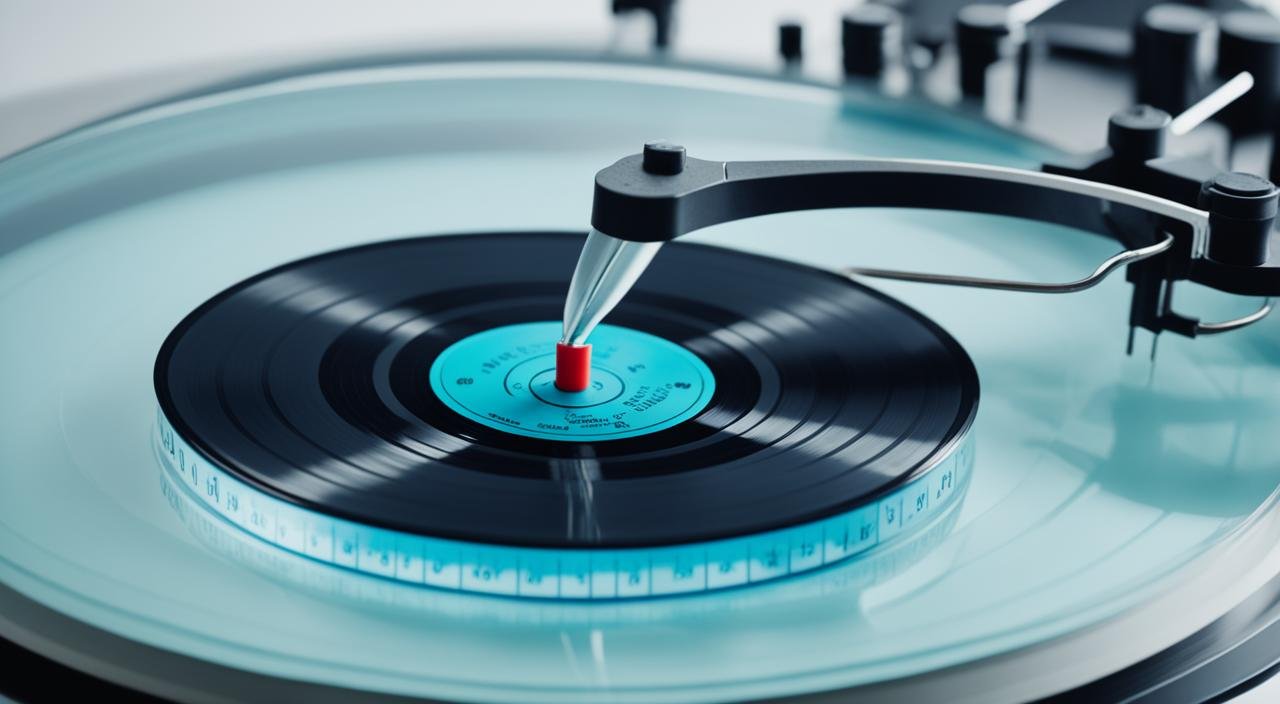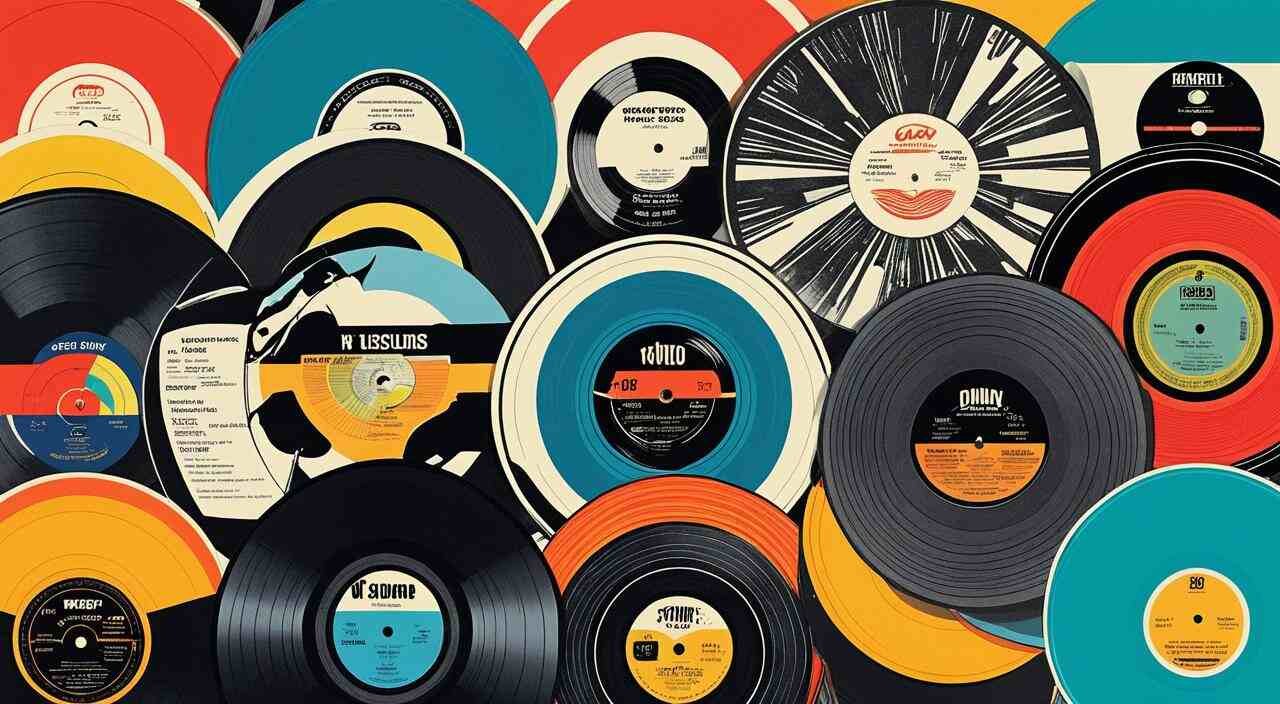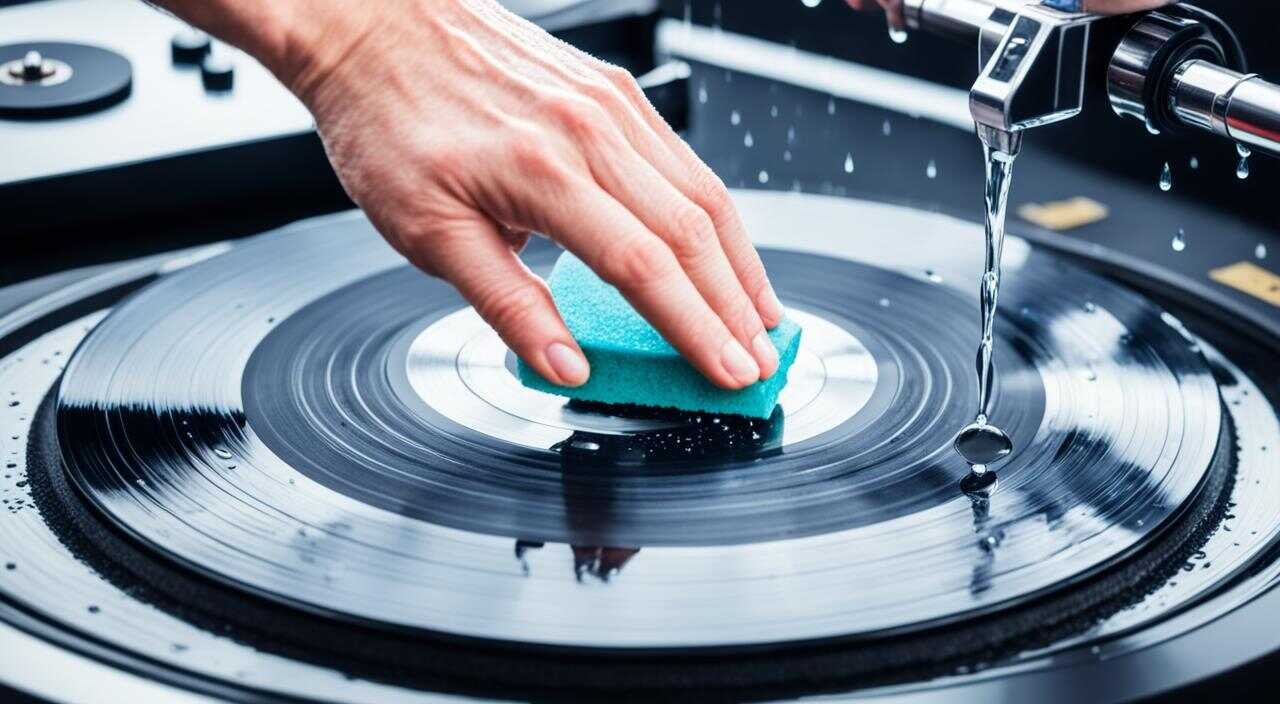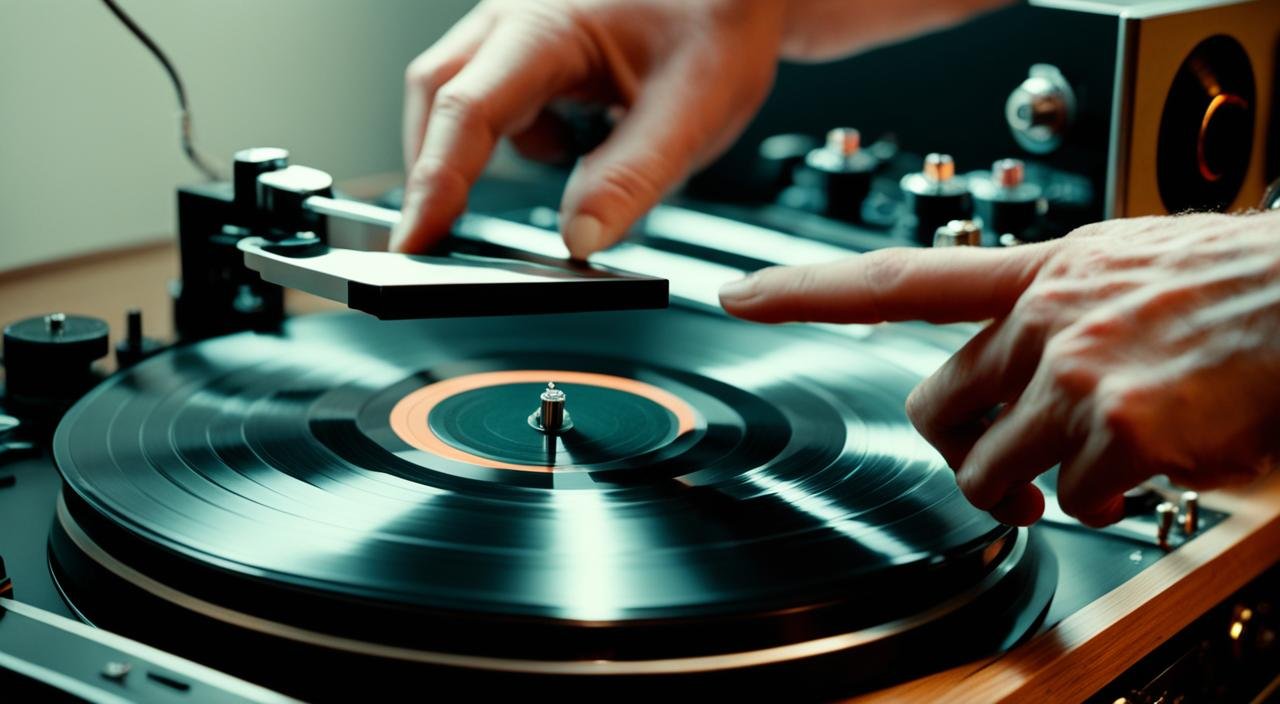Vinyl records are beloved by collectors for their rich sound and nostalgic charm. However, these fragile music artifacts are susceptible to damage, especially when not stored properly. One crucial factor to consider when storing vinyl records is temperature. Fluctuations in temperature can cause warping, cracking, and deterioration of the vinyl material. To ensure the longevity and quality of your vinyl collection, it is important to understand and implement the ideal storage temperature.
Key Takeaways:
- Proper temperature control is essential for vinyl records storage
- Fluctuations in temperature can damage vinyl records
- The optimal temperature range for vinyl records storage is between 65 and 75 degrees Fahrenheit (18 to 24 degrees Celsius)
- Extreme temperature environments should be avoided
- Investing in climate-controlled storage units helps maintain the ideal temperature
Proper storage temperature is crucial for maintaining the quality and longevity of vinyl records. By following the tips outlined in this guide, including proper handling, packing, and protection from heat and moisture, collectors can ensure the preservation of their vinyl collections for years to come. Remember, investing in climate-controlled storage units can provide the optimal conditions for storing vinyl records and protecting them from temperature and humidity damage.
The Impact of Temperature on Vinyl Records
Vinyl records are sensitive to temperature changes. Exposure to high temperatures can lead to warping, while cold temperatures can make the vinyl material brittle and prone to cracking. It is crucial to store vinyl records correctly and maintain a consistent temperature to prevent damage and ensure their long-term preservation.
The best temperature range for vinyl records storage is between 65 and 75 degrees Fahrenheit (18 to 24 degrees Celsius). Storing vinyl records within this optimal range helps to minimize the risk of warping, cracking, and deterioration. Consistency in temperature is key, as frequent fluctuations can cause stress on the vinyl material.
Avoid storing vinyl records in extreme temperature environments, such as attics or basements, which are prone to high humidity levels. High humidity can lead to mold growth and damage the vinyl surface. Instead, consider utilizing climate-controlled storage units that provide a controlled temperature and humidity level, ensuring the ideal conditions for vinyl records preservation.
By storing vinyl records at the appropriate temperature and maintaining a controlled environment, collectors can enjoy their collections for years to come, free from the risks of heat-related damage or brittleness.
Tips for Proper Vinyl Records Storage

In addition to maintaining the ideal storage temperature, there are a few tips to ensure the proper storage of vinyl records.
First, handle vinyl records with care, as moisture and oils from the hands can damage the vinyl material. It is recommended to wash and dry hands before touching records and to hold them by the edges or labeled areas to prevent wear and tear. Using microfiber gloves can further protect the records from scratches.
Second, it is essential to pack records in the right container. Avoid laying records flat or stacking them on top of each other, as this can lead to damage. Instead, store records vertically in protective storage crates or cases, keeping them in their sleeves to prevent dust and dirt accumulation.
Finally, protect records from heat and moisture by storing them in a cool, dry location away from direct sunlight and humidity sources.
By following these tips, you can ensure that your vinyl records are stored properly and will maintain their quality for years to come.
Proper Handling
- Wash and dry hands before touching vinyl records
- Hold records by the edges or labeled areas to prevent damage
- Use microfiber gloves to protect records from scratches
Correct Packing
- Store records vertically in protective storage crates or cases
- Keep records in their sleeves to prevent dust and dirt accumulation
- Avoid laying records flat or stacking them on top of each other
Protection from Heat and Moisture
- Store records in a cool, dry location
- Avoid direct sunlight and humidity sources
Vinyl Records Storage Tips
| Tips |
|---|
| Handle vinyl records with care |
| Pack records vertically in protective storage crates or cases |
| Keep records in their sleeves to prevent dust and dirt accumulation |
| Store records in a cool, dry location away from direct sunlight and humidity sources |
Conclusion
Ensuring the proper storage temperature is essential for maintaining the quality and longevity of your vinyl records. The ideal temperature range for vinyl records storage is between 65 and 75 degrees Fahrenheit (18 to 24 degrees Celsius). It is important to avoid extreme temperature environments, as they can cause irreversible damage.
By following the tips provided, such as handling records with care, packing them correctly, and protecting them from heat and moisture, you can preserve the integrity of your vinyl collection. Remember to store your records vertically, in protective storage crates or cases, and away from direct sunlight and humidity sources.
Investing in climate-controlled storage units is highly recommended to ensure optimal conditions for your vinyl records. These units provide precise temperature and humidity control, safeguarding your collection from potential damage. By prioritizing temperature control, you can enjoy your vinyl records for years to come, with their original quality intact.
FAQ
What is the ideal temperature for storing vinyl records?
The ideal temperature for storing vinyl records is between 65 and 75 degrees Fahrenheit (18 to 24 degrees Celsius).
Why is temperature important for vinyl record preservation?
Temperature fluctuations can cause warping, cracking, and deterioration of vinyl records, leading to a loss of quality.
Can high temperatures damage vinyl records?
Yes, exposure to high temperatures can cause warping of vinyl records, impacting their playability.
Are cold temperatures harmful to vinyl records?
Cold temperatures can make the vinyl material brittle and prone to cracking, which can result in permanent damage.
Can vinyl records be stored in extreme temperature environments?
It is best to avoid storing vinyl records in extreme temperature environments like attics or basements, as they are prone to high humidity levels, which can further damage the records.
How can I protect vinyl records from temperature damage?
Storing vinyl records in a climate-controlled storage unit is recommended to maintain a consistent temperature. Additionally, avoid direct sunlight and keep records away from humidity sources.
How should vinyl records be handled for proper storage?
Vinyl records should be handled with care. Wash and dry your hands before touching records, hold them by the edges or labeled areas to prevent wear and tear, and consider using microfiber gloves to avoid scratches.
What is the best way to pack vinyl records for storage?
When packing vinyl records for storage, store them vertically in protective storage crates or cases. Avoid laying them flat or stacking them, as this can cause damage.
Should vinyl records be kept in their sleeves when stored?
Yes, keeping vinyl records in their sleeves helps prevent dust and dirt accumulation, keeping them clean and protected.
Can temperature affect the sound quality of vinyl records?
Yes, temperature fluctuations can impact the sound quality of vinyl records, leading to distortions and decreased playback performance.









Leave a Reply